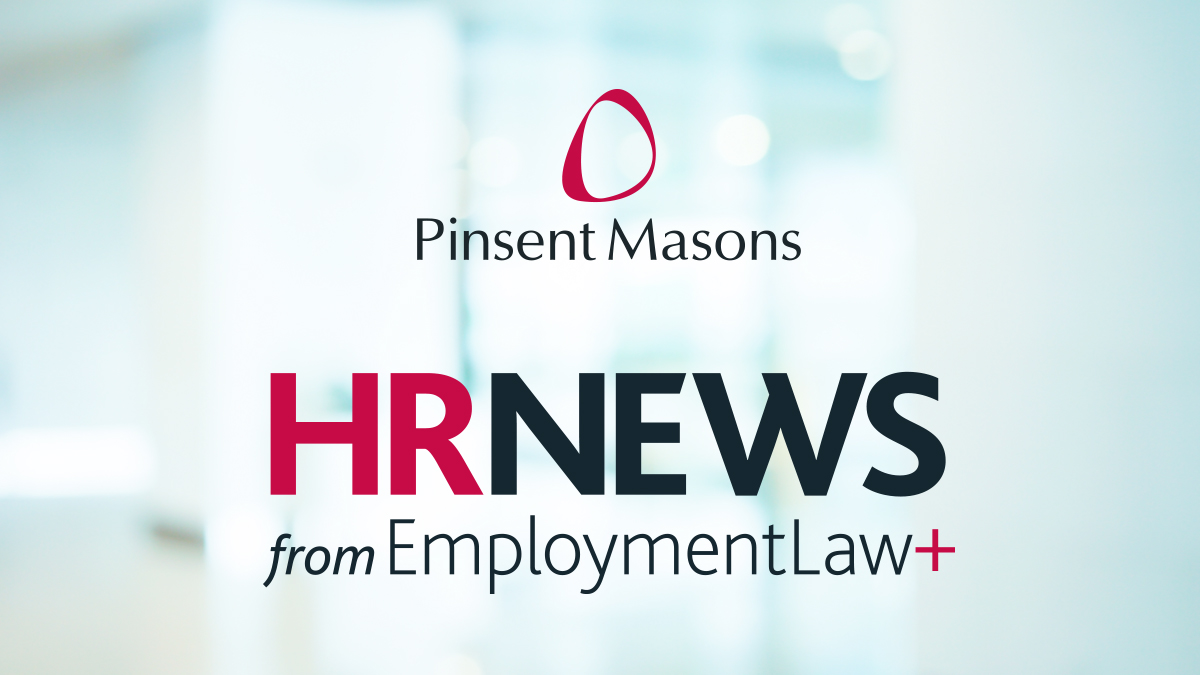When an employer sponsors a migrant worker, it takes on legal obligations to the Home Office – and those duties don’t go away when a restructure happens. In fact, even where the job remains, changes to duties, hours, salary, or location can all have immigration consequences. So what is HR’s role in managing change day-to-day, and what employers can do to stay compliant, support sponsored workers, and protect their sponsor licence? We’ll ask an immigration exert that question.
There’s a risk in assuming that immigration compliance is only about new hires and right to work checks. In fact, many of the most serious breaches happen when an existing employee’s role changes without the Home Office being notified. Even a slight change – like reducing hours or moving someone to a different site – can trigger a reporting duty. And if the job changes materially, it might require a new visa altogether.
The Home Office expects sponsors to keep accurate and up-to-date records, and to report changes to employment within 10 working days. If a sponsor fails to do that, it’s a breach – even if the worker remains with the business and even if the sponsor didn’t realise a report was needed.
That’s why immigration needs to be built into HR’s internal processes – including how restructuring options are explained to employees, how voluntary redundancies are handled, and how decisions are communicated. And that includes those who are on a path to settlement. A poorly timed change – even if it looks minor – can interrupt someone’s qualifying period.
Earlier, I caught up with immigration specialist Shara Pledger, who joined me by video link from Manchester:
Shara Pledger: “If an HR professional knows, we have a sponsor licence and it's quite likely that we're going to be impacting some of our sponsored workers when we come to look at whether we adopt a redundancy procedure or how that procedure might play out, it's really important that they get all of their ducks in a row before they go into it. What we don't want to do is end up in a situation where decisions are being made or, perhaps, even employees are being asked whether they want to consider taking voluntary redundancy, or other ways of departing the business, without everybody having a good degree of understanding of what it might mean about their status. That has a very immediate impact for somebody that's on the path towards settlement because they'll obviously have a degree of interruption in terms of who their sponsor might be or, indeed, whether they have the right to work and reside in the UK, but it also has quite a serious implication for people who are applying for settlement as well. Certainly, when we've been speaking with some clients in relation to a restructuring process that they have been undergoing there have been questions about what does this mean in relation to our workers who are actually quite a long way down their path towards settlement? You know, we'd really like to support them while they remain enrolled, but we know that they are at risk of redundancy and does that have an impact? And unfortunately, it does. So, there's an awful lot to consider in making sure that that's done thoroughly at the start of the process and that will very much be of value to both business and employee down the line.”
Joe Glavina: “So the key message, Shara, is to plan ahead, clearly. So if HR knows sponsored workers could be affected, it’s about making sure everyone understands the immigration risks right from the start?”
Shara Pledger: “Redundancy, restructuring, all of these types of processes are hugely complicated and they involve so many different variables. I think it's quite easy for things like immigration to kind of fall by the wayside a little bit because it's not necessarily something that you need to think about right at the start in terms of action that needs to be taken. However, we really do feel that there is a benefit to engaging quite early on with your legal representative, or whoever it is that you're speaking to, and certainly we know that we've been able to add value for our clients by delivering sessions for their employees, for example. So being able to take on the role of actually explaining the implications of a redundancy, for example, in terms of what that means for a worker, for their family, for their settlement prospects, etcetera, and making sure that everybody does have that information very early on in the process can often, and hopefully, try and smooth that process as it then does follow through, and just make sure that everybody does know exactly what goal they're heading to and how they might be able to achieve that.”
Joe Glavina: “You’ve talked previously about the operational risk where only one person only, or few people, understanding the sponsor licence and no one else is across the detail. Can you explain that?”
Shara Pledger: “I think for any situation where you've got sponsored workers it's always really important to make sure that, firstly, there are enough people in the business that understand exactly what that means and who is impacted. It can often be the case that organisations end up with a single point of failure when it comes to sponsorship, so they have just one individual that has a lot of the information, and it doesn't really end up getting shared amongst the team. That can be quite dangerous when you end up in a situation such as restructuring or redundancy because if that individual is suddenly no longer part of the process for you, it means that there is this big gap in terms of knowledge. So if there are organisations that think that these issues might be of relevance to them now, or in the coming months, then I would definitely encourage people to make sure that you are up to date in terms of the use of your sponsor licence and the knowledge about that is shared accurately and evenly amongst the team just to make sure that everybody is aware of what the implications might be. We do from time to time see circumstances where businesses are reliant on their sponsor licence for, usually, business critical employees, but it might be quite a small number and so the actual day to day use of the sponsor licence is limited at best. In those scenarios it's not uncommon for there to have been a single member of the team that took on board the responsibility of getting the sponsor licence and making sure that it was meeting the requirements for, perhaps, that one or those two key employees but they were now sponsored several years ago and nothing's really changed with them, nothing has really needed to happen, and that team member has moved on. In those circumstances it’s quite risky from the point of view of the business not just because they don't have anybody that has this knowledge now within the organisation to pick up on things that are changing, but it's also breach sponsor guidance. So if you don't have an authorising officer, that's a breach. If you don't have somebody that has active access to your sponsorship management system online, that's a breach. So we definitely do, unfortunately, see from time-to-time clients, businesses, that have strayed into being in breach of their sponsor obligations because they have kept all of their knowledge with either one person or a very, very small team, and then haven't adapted to changes to those personnel. So it is really important to make sure that there are regular audits of the sponsor licence, not just from the point of view of who's sponsored under it, but also from the point of view of who actually has ownership of it and who has knowledge about it.”
If your business is going through organisational change and you are affected by any of those issues then please do contact Shara – her details are on the screen for you. Alternatively, you can contact your usual Pinsent Masons adviser.
Out-Law / Your Daily Need-To-Know
Key immigration compliance role for HR during organisation change
05 Jun 2025, 10:11 am
Shara Pledger tells HRNews about the impact of organisational change on sponsor licences and HR’s role in ensuring compliance with UK immigration laws.

-
Transcript


